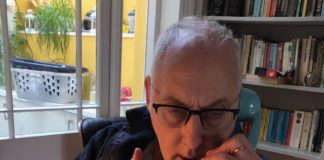- Massaging the truth - 27th February 2026
- ‘It’s the new economy, stupid…’ - 27th February 2026
- Eyes right… - 26th February 2026

As an Easter bank holiday read, here our Editor, Welshman Phil Parry explains how during 23 years with the BBC, and 39 years in journalism (when he was trained to use simple language, avoiding jargon), relying on trusted sources was always central. This has now been emphasised by details of a fight back underway against nonsensical fake ‘news’, following revelations that a French television presenter was suspended amid claims that he read out ‘stories’ which were part of a disinformation campaign, and received money for it.
Previously he has described how he was helped to break into the South Wales Echo office car when he was a cub reporter, recalled his early career as a journalist, the importance of experience in the job, and made clear that the ‘calls’ to emergency services as well as court cases are central to any media operation.
 He has also explored how poorly paid most journalism is when trainee reporters had to live in squalid flats, the vital role of expenses, and about one of his most important stories on the now-scrapped 53 year-old BBC Cymru Wales (BBC CW) TV Current Affairs series, Week In Week Out (WIWO), which won an award even after it was axed, long after his career really took off.
He has also explored how poorly paid most journalism is when trainee reporters had to live in squalid flats, the vital role of expenses, and about one of his most important stories on the now-scrapped 53 year-old BBC Cymru Wales (BBC CW) TV Current Affairs series, Week In Week Out (WIWO), which won an award even after it was axed, long after his career really took off.
Phil has explained too how crucial it is actually to speak to people, the virtue of speed as well as accuracy, why knowledge of ‘history’ is vital, how certain material was removed from TV Current Affairs programmes when secret cameras had to be used, and some of those he has interviewed.
Earlier he disclosed why investigative journalism is needed now more than ever although others have different opinions.

Things are looking up.
For years now we have been treated to accusations that certain stories which actually portrayed the truth were false, and there was a different way of looking at the picture.
In 2017 the US Counselor to the (then) President, Donald Trump, Kellyanne Conway even coined a phrase to describe it when she spoke to reporters about the poor attendance at Trump’s inauguration.


Ms Conway said there were “alternative facts” when looking at the turnout. She was speaking during a Meet the Press interview in January of that year, and her comments shocked the hardened journalists there.
Three years later, Ms Conway left the administration after months of a very public feud with her teenage daughter, who lambasted her in the media. She is now used by news outlets as a political pundit. Perhaps Ms Conway’s personality, and talking about ‘alternative facts’ had something to do with the downfall, but she is not the only one.

Rachid M’Barki, a presenter on the French rolling news channel BFMTV, was suspended amid claims that he broadcast ‘stories’ which were in fact part of a disinformation campaign by governments and businesses.
The details were exposed by a consortium of investigative journalists, and the channel has begun a top-level inquiry.
These events are to be applauded, and the seeming push-back against fake ‘news’ is welcome.
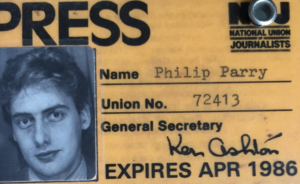 When I started in journalism in 1983, the mantra from my trainers was: “check, check, check”, which involved not just confirming the factual accuracy of what was being published, but that the source could be relied upon.
When I started in journalism in 1983, the mantra from my trainers was: “check, check, check”, which involved not just confirming the factual accuracy of what was being published, but that the source could be relied upon.
If only everyone knew this. The apparent rise of people giving ‘news’ from Twitter or Facebook (FB) is one aspect of this worrying trend, conspiracy theories, and those offering ridiculous anti-vaccination or lockdown ‘details’ during the pandemic, were others.
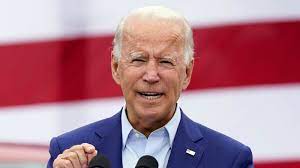
US President Joe Biden accused FB of “killing people” by spreading misinformation about vaccines to combat Covid-19. He later rowed back a bit after FB pointed out it does quite a lot to stop the spread of such content and to promote legitimate vaccine.
This came as a whistleblower gave more disturbing news about what has been happening within the social media giant. Frances Haugen said that executives disbanded FB’s ‘Civic Integrity’ unit and relaxed measures they had imposed to control misinformation in the run-up to the US election. “They basically said: ‘Oh good, we made it through the election, there wasn’t riots’”, she told the CBS show 60 Minutes. “Fast forward a couple of months we got the insurrection”.
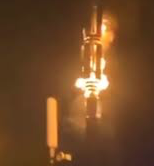
Through social media platforms like FB, other myths have also been put about. They included the absurd notion that Covid-19 could be cured by drinking methanol, which led to more than 700 deaths in Iran, and that it was spread by 5G transmitters, which convinced arsonists in the UK to carry out more than 90 attacks on phone towers.
A poll by Gallup of people in 28 countries on four continents, found that in all of them at least 16 per cent (and as many as 58 per cent) thought Covid-19 was deliberately developed. A clip of a film called ‘Plandemic’ claimed that a shadowy elite started the outbreak for profit, and within a week of it being uploaded, it had been seen eight million times, with its star, Judy Mikovits, topping Amazon’s bestseller list. A study published in Nature found that, although pro-vaccine FB users outnumbered anti-vaccine ones, the anti-vaxxers were better at forging links with non-aligned groups like school parents’ associations, so their numbers grew faster.
![]()

Among Americans, exposure to social media was associated with a greater likelihood of believing that the US Government created the virus or that officials exaggerated its seriousness. In the UK, the broadcasting regulator, OFCOM, censured a tiny TV station called London Live for airing part of an interview with David Icke, a conspiracy theorist who believes the pandemic was a hoax. At the time of OFCOM’s ruling six million people had viewed the full interview on YouTube, which was outside their jurisdiction.
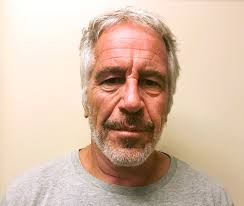
Sadly this kind of nonsense was being aired more than ever before the fight back.
Just hours after the notorious financier Jeffrey Epstein was found dead in his cell, wild and unsubstantiated theories about the death began to circulate on the internet. Many rumours centred on what politicians allegedly may have known about Epstein’s crimes and whether some could have wanted him dead. There is absolutely no evidence to suggest this was the case, and yet, the hashtag #EpsteinMurder trended worldwide.
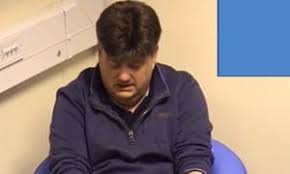
The appalling case of the fantasist Carl Beech, is another one where wild conspiracy theories were central, and sources should have been checked. Beech had ‘told’ the authorities of a high-ranking paedophile ring in which children were murdered. He came to public notice on the BBC’s Six O’Clock News, and was being ‘interviewed’ by a reporter, but the ‘questions’ were unbelievable. This is an extract of what Beech (who used the pseudonym ‘Nick’) was asked: “They were sexually abusing you? (Yes) And they seem to have been powerful enough to keep this hidden? (Yes) It’s amazing. There seems to have been quite an organised network to allow this to happen? (Yes)”.

The former Labour MP, and one time deputy leader of his party, Tom Watson warned about “a powerful paedophile network linked to Parliament and No 10″. The same day, on ITV’s This Morning, the presenter Phillip Schofield brandished a sheet of paper in front of ex-Prime Minister, David Cameron, claiming it was a list of Tory paedophiles that he had “found on the internet”.
For 18 months between 2014 and 2016, Beech was the star witness in a high-profile police investigation into allegations of sexual abuse and murder, involving MPs, generals and senior figures in the intelligence service. He was even helped by detectives to get a claim processed that he had previously made to the Criminal Injuries Compensation Authority, following the ridiculous allegations he had made.
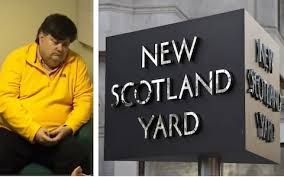
What Beech said was all a complete fabrication and he is now serving a jail term of 18 years – sentenced for 12 counts of perverting the course of justice, one of fraud, and for several child sexual offences.
Apart from checking the source, another basic tenet of journalism, which evidently the police did not apply in the Beech case, is: USE YOUR COMMON SENSE! Obviously anyone who comes to you with a story about children being murdered, should be treated with extreme caution. Frankly this is unlikely to be true and you need evidence – yet it seems the Metropolitan Police (Met) believed Beech without this. A top detective wrongly called the allegations “credible and true” before his force had even completed the inquiries. Unfortunately it seems his source is now in jail for making up ‘facts’.
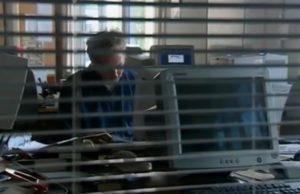
News like this, though, is unlikely to be presented by Mr M’Barki (unless he takes money for it, and certainly not now he’s been suspended), or used in the punditry of Ms Conway…
Phil’s memories of his remarkable decades long award-winning career in journalism (when it was vital to rely on trusted sources) as he was gripped by the rare disabling condition Hereditary Spastic Paraplegia (HSP), have been released in a major book ‘A GOOD STORY’. Order the book now!

Regrettably publication of another book, however, was refused, because it was to have included names.
Tomorrow – why REAL news about a state-run airline considering restarting services from Cardiff Airport (CA), highlights how its home country holds pariah status among some of its neighbours, stands accused of supporting terrorism, the former director of another airline, declared investors would never put money in to the airport, and that an ex-owner of the nationalised facility had warned ministers it was in the “wrong place”.











